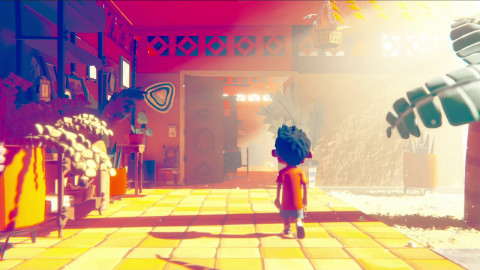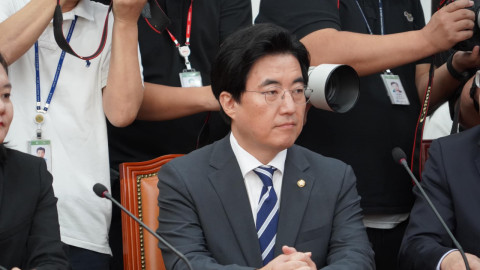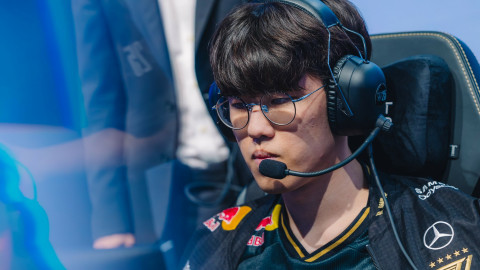
There are two main paths to professional sports. Firstly, aspiring athletes can go the academic route and be part of a league hosted by the National Collegiate Athletics Association (NCAA). In this way, athletes can choose to pursue education while they prepare for professional sports.
Alternatively, aspiring pros can join minor or development leagues where athletes can participate in and truly focus on their sport without having to worry about the math exam that is coming up in two weeks. However, there are a few drawbacks to these minor leagues. For example, there is a salary cap in some minor leagues and it is often very low, and some athletes who jump into the minor leagues straight from high school may not be mentally and physically prepared to be professionals.
But, this is not to say that the alternative collegiate path is perfect; it is riddled with its own problems. There are controversies regarding whether student athletes should be paid and many student athletes also struggle to maintain a balance between school and sports. The NCAA has even been the subject of an FBI investigation over corruption and bribery.
"In minor esports leagues, teams like ... Last Night's Leftovers
can reach the playoffs with little to no financial support,"
However, all these arguments (besides the bribery and corruption allegations) could only be made because sports leagues have existed for decades, and there is a well-established tier 2 scene. But esports is drastically different. Many of the players in the tier 2 scenes of most esports continue to struggle to make ends meet unless they are backed by major gaming organizations like NRG Esports or Fnatic.
And without support from these organizations, these young athletes’ futures would be volatile and unstable. If, for example, in the event that an esports athlete gets injured or they do not have the skill necessary to make it to pro, they will have sacrificed everything (e.g. not attending school) with nothing to fall back on.
In minor esports leagues, teams like the North American Overwatch Contenders team, Last Night’s Leftovers, can reach the playoffs with little to no financial support. A lack of financial stability in esports will encourage players to make quick bucks through unsavory deeds like boosting (playing other people’s accounts or “carrying” people to higher ranks), which is often seen as taboo for many gaming communities.
But, if there were a collegiate esports program, players can have the foundation to start a healthier path to become a professional athlete. Through these programs, esports athletes could form practice routines; learn how to manage their time and build interpersonal skills; and, even have the opportunity to pursue a host of other esports-related careers such as law, analysis, management, and even team ownership.
Aspiring young esports athletes could reap a host of benefits if colleges decided to opt-in for a dedicated esports program on their campuses, and no organization other than Tespa could make this a reality.
Tespa aims to make esports mainstream throughout colleges in North America
Tespa is one of the biggest collegiate-level gaming platforms around the world with over 270 university chapters and over 102,000 members and alumni across North America. The purpose of Tespa is to build “a network of college clubs founded to promote gaming culture and host the best college esports events and competitions.”
Tespa members aim to grow esports within college communities, and the organization is one of the largest operators of college-level esports leagues in the world, working in games such as Overwatch, Hearthstone, and Heroes of the Storm. They have partnered with big names in the industry, such as the game publisher Blizzard Entertainment and the livestreaming platform Twitch.
"I think most people involved in the pro scene recognized me more
from my play in the ladder than the time I spent in Tespa,"
Many Overwatch League players, such as Bani from Houston Outlaws, Moth from San Francisco Shock and Mr. Bleeple from Boston Uprising, have walked Tespa’s path to pro (although these individuals already had connections within the tier 1 and tier 2 scenes).
And some pro Overwatch players are on this path right now via Tespa. The current main tank of Mayhem Academy, Daniel “Alined” Lee, and the former head coach of Mayhem Academy, Ronald “Renanthera” Ly, are two players who have walked the path to pro, both starting in Tespa and advancing to Overwatch Contenders.
Alined was captain and a flex DPS player for UC Berkeley (Cal Esports) when they won both the 2016 and 2017 Tespa Overwatch Collegiate Championships. Their dominance over other teams has been strikingly clear by beating the runners-up in both years with a score of three to nil.
Cal Esports offers a variety of facilities for gamers, including a community center where players can rent gaming spaces for individual practices or team scrims (practice rooms are free for teams participating in official matches). They also provide other facilities like streaming and broadcasting booths and lounges that can host viewing parties for various esports events.
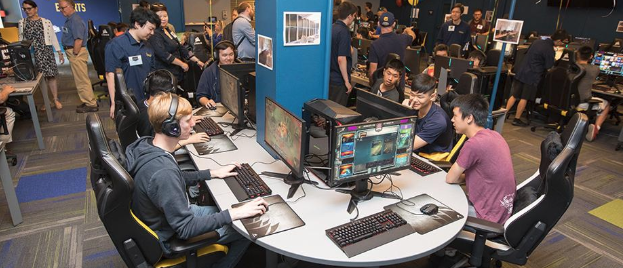
The school offers scholarships and sponsorships for esports athletes, and takes collegiate-level tournaments seriously, employing rigorous testing to find the best players for their teams. UC Berkeley is unique in that their esports program is now sponsored by NRG Esports (parent company of San Francisco Shock), Riot Games, nVidia, Corsair, and others.
Although Alined, as a part of Cal Esports, swept through Tespa’s Overwatch Collegiate Championships, the Overwatch community and the professional scene has yet to acknowledge Cal Esports’ achievements or perceive Tespa as a competitive tournament.
Even Alined agreed with these sentiments, saying: “To be frank, the level of competition is not acknowledged by the professional tier. Because of this, I think most people involved in the pro scene recognized me more from my play in the ladder than the time I spent in Tespa.”
Collegiate Championships: The Future Path to Pro
Even though Collegiate Championships may not be regarded as competitive by the community at present, they will eventually become more respected, competitive tournaments as more universities decide to establish esports programs to mold an army of professional esports athletes.
South Korea, the Mecca of esports, was able to produce strong competitive gaming athletes because there were foundations built to produce such strong players. However, South Korean society is a conservative country and mixing education with gaming was almost unheard of, and it is still super rare despite the prevalence of gaming in society.
To this day, there are still very few schools or universities that support esports life for its students. Therefore, when the esports industry was developing in South Korea, players depended on private gaming companies like Meta Gaming and MVP for a stable professional gaming life instead of relying on esports programs developed by schools or universities.
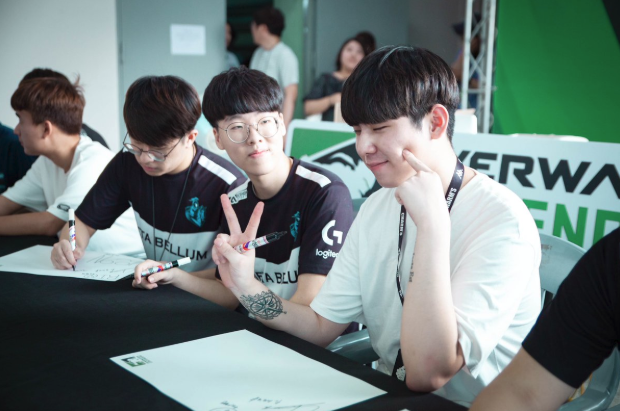
However, this does not have to be the case in America. Competitive sports in colleges are deeply embedded in society, so the foundation to establish a stable and effective esports programs is already there. And if esports programs in universities become the norm, more and more players can pursue education while also pursuing their gaming passion with proper guidance and stability.
Once more universities catch on to the trend and provide esports programs like the ones in UC Berkeley (and Maryville University), the competitive quality of Tespa leagues will increase, and collegiate-level esports tournaments could become a well-developed and legitimate ‘path to pro.’
Finally, collegiate esports could be acknowledged by the pro scene just like how many major leagues scout out NCAA for future stars. This is especially true when the majority of Contenders players will move on to the Overwatch League in Season 2.
"...in just a few years time, we will see an explosive eruption or postsecondary
graduates in all sorts of varieties of esports leadership positions,"
Renanthera, from the University of Toronto, played against Cal eSports in the finals in 2017, and recognizes and understands the perception that people have about college esports and how it is often perceived as those who are less skilled because of other obligations.
But Renanthera wants you to think otherwise.
Renanthera states: “For many outsiders looking in, they probably view the collegiate pathway as the option designed for the less ambitious or the less skilled. Yes, it is true that you will be splitting valuable practice time with taking care of homework. And yes, you will have to build on your in-game fundamentals, polish your mechanics, and study the game rigorously while attending classes, maintaining your GPA and chasing scholarships.
However, I want to break the stigma that collegiate players are somehow less dedicated or unskilled simply because they’ve chosen to also try and get an education. Juggling school and esports were very difficult, but it was not without tremendous reward. I have knowledge pertinent to my career as a coach now, my approach to the game and my teams are shaped by my philosophies and skills from my schooling. My study and training habits, my interpersonal skills, problem-solving ability, and critical thinking have all been improved from my time in academia.
I am certain that in just a few years time, we will see an explosive eruption or postsecondary graduates in all sorts of varieties of esports leadership positions. Players, captains, callers, managers, coaches, analysts, casters, psychologists, lawyers -- you name it.”
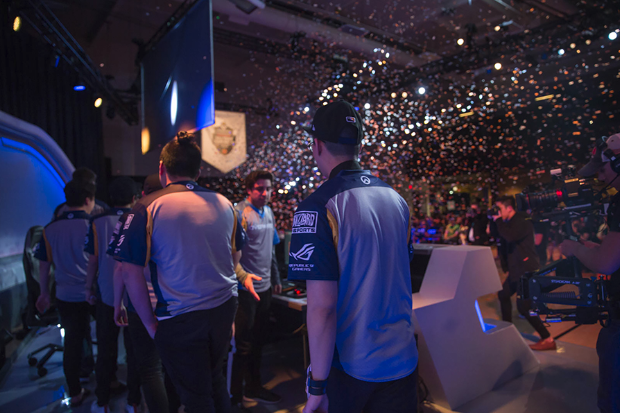
Alined also believes in the future of Tespa: “… I can see the collegiate scene being more of a part of the “Path to Pro” as time passes and more universities develop their esports programs to the point that competitive benefits such as scholarships are offered. Tespa provides a great foundation, but it’s up to universities and their esports programs to create a more competitive field.”
It might even take decades until many of the colleges in North America fully accept the importance of esports programs and fully provide sponsorships for young esports athletes. However, Tespa and its collegiate championships for Overwatch and other games will increase the publicity of esports within a campus and help speed up the process of a better esports future in higher education.
Sort by:
Comments :0




